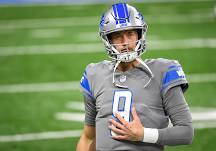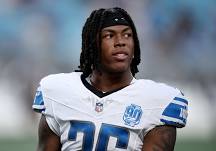Za’Darius Smith, left last week’s game against his old team a bit lighter in the wallet. During the Detroit Lions’ win, Smith was penalized nearly $7,000 by the NFL for a hit to the head on Packers quarterback Jordan Love. The play drew a flag from the officiating crew and, in hindsight, Smith might tell you he’d gladly exchange the fine for an uncalled 15-yard penalty and an automatic first down
Meanwhile, Lions guard Christian Mahogany wasn’t spared either. He was fined $4,609 for grabbing Packers linebacker Quay Walker’s facemask during another flagged play. While the league is doling out financial penalties, many fans feel these fines only punish players after the fact rather than addressing the fairness of officiating during the game itself.
It’s a sentiment that’s hard to ignore. Penalizing players monetarily doesn’t change the outcome of games, nor does it provide any immediate remedy for affected teams. For Packers fans, Smith’s fine does little to erase the impact of the missed opportunity in the moment.
The NFL’s increase in fines has sparked heated debates over the past couple of years. In 2016, the league handed out a record 238 fines in a season, but that number pales in comparison to recent years. As of Week 11 of the 2024 season, the NFL had already issued 283 fines — and the regular season still has several weeks to go.
The seemingly arbitrary nature of some fines only adds fuel to the fire. Last month, Kansas City Chiefs quarterback Patrick Mahomes was hit with a $14,069 fine for what the league deemed a “violent gesture.” The gesture? A harmless finger-pointing motion interpreted as “finger guns.” That fine was more than double what Smith received for his headshot on Love.
Fines are reportedly directed toward the Professional Athletes Foundation, funding programs like youth football. However, defensive players often shoulder most of the financial burden, raising questions about fairness in a league that claims to prioritize safety and equity.



